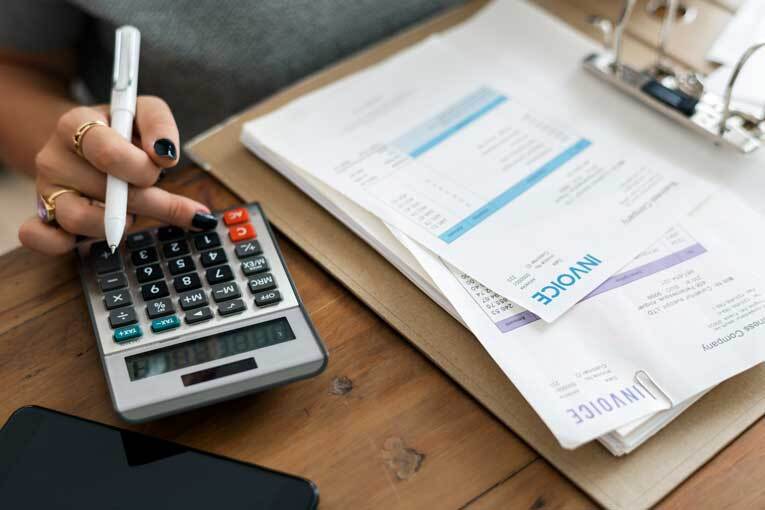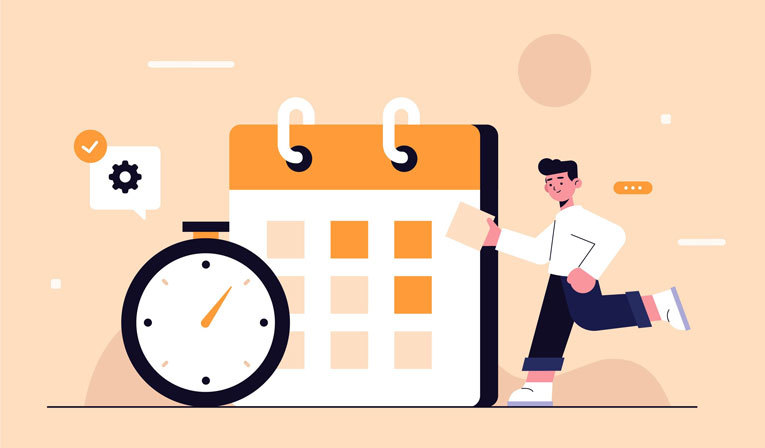Self-employed? Ensure you claim the right expenses
2 Sep 2019

Most self-employed people pay out for a wide variety of business costs. HMRC allows you to claim some of these costs to reduce your taxable profit and therefore your tax bill.
For example, if your turnover is £40,000, and you claim £10,000 in allowable expenses, you only pay tax on the remaining £30,000 - a significant saving.
Allowable expenses do not include money you take from your business for private purchases.
But they do include office costs and those related to travel; clothing; staff; things you buy to sell on; financial services; business premises; advertising and marketing.
This article covers
The simplified expenses scheme
Understanding how all these expenses work on tax and accounting returns can be painful for self-employed people, especially those just starting out. HMRC helps ease this pain by providing a simplified expenses scheme for the self-employed.
Simplified expenses allow you to work out some of your expenses based on standard rates, set by HMRC, making the calculation easier.
You can use simplified expenses for vehicles, working from home and living in business premises. For all other expenses, you must calculate the actual costs.
To use simplified expenses, record your business miles for vehicles; hours you work at home; and how many people live at your business premises.
At the end of the tax year, apply the flat rates summarised below, and include them as expenses in your self-assessment tax return.
You do not have to use simplified expenses. You can calculate actual costs instead. Use the simplified expenses checker to compare the two.
Simplified vehicle expenses
For vehicles, you can use flat mileage rates for cars, vans, or motorcycles, instead of calculating the actual costs of buying and running vehicles such as insurance, repairs, servicing and fuel.
You can claim 45 pence per mile for the first 10,000 miles you drive in a year, and 25 pence thereafter.
Simplified working from home costs
If you work from home for at least 25 hours a month, you can use a flat rate based on - £10 a month for those who work from home 25 to 50 per hours per month; £18 for 51 to 100 hours; and £26 for 101 hours or more.
This avoids having to calculate the proportion of personal and business use, for example, how much of your utility bills are for business.
The flat rate does not include telephone or internet expenses. Claim these by working out the actual costs.
Calculating actual expenses
Gov.uk gives a useful summary of how to calculate actual allowable expenses outside the simplified scheme.
Working from home
If you work from home, you may be able to claim part of your costs for things like heating, electricity, council tax, mortgage interest, rent, internet and telephone.
You need to find a reasonable method of dividing these costs, which may be by number of rooms used for business, or time spent working from home.
For example, you have four rooms in your home, but use one only as an office. Your electricity bill for the year is £400. Assuming all the rooms use equal amounts of electricity, you can claim £100 as allowable expenses - that is, £400 divided by four.
If you work only one day a week from home, you could claim £14.29 as expenses - £100 divided by seven.
Office, property and equipment
You can claim items you normally use for less than two years as allowable expenses, for example, stationery, rent, rates, power and insurance costs.
You can claim equipment you keep to use in your business, such as computers or printers, if you use cash basis accounting. If you use traditional accounting, claim it as a capital allowance.
You cannot claim for any non-business use of premises, phones or other office resources.
Stationery
You can claim expenses for phone; mobile; internet; postage; stationery; printing; printer ink; and computer software that your business uses for less than two years.
You can also claim for computer software if it has a licence requiring regular payments. Claim other business software as capital allowances, unless you use cash accounting.
Rents, rates, power and insurance costs
You can claim rent for business premises; business and water rates; utility bills; property insurance; and security. You can also claim for using your home as an office, but only the part that is used for business.
Business premises
You cannot claim expenses or allowances for buying buildings. But you can claim for repairs and maintenance of business premises and equipment.
For alterations to install or replace equipment, claim allowable expenses for cash accounting, or capital allowances for traditional accounting.
You can also claim capital allowances for some integral parts of a building, such as water heating systems.
Car, van and travel expenses
You can claim expenses for vehicle insurance; repairs; servicing; fuel; parking; hire charges; vehicle licence fees; breakdown cover; train, bus, air and taxi fares; hotel rooms; and meals on overnight business trips.
You cannot claim for non-business driving or travel costs; fines; and travel between home and work.
Buying vehicles
If you use traditional accounting and buy a vehicle for your business, claim it as a capital allowance.
For cash accounting, you can claim a car as a capital allowance, providing you are not using simplified expenses. Claim all other types of vehicle as allowable expenses.
Keeping receipts
You should keep receipts of business expenses in case HMRC wants to check them. You should keep them for at least five years after the 31 January submission deadline of the relevant tax year.
Expenses sorted
When starting out as self-employed, dealing with expenses can seem a daunting task. By now, you should be feeling much clearer about which expenses scheme is best for you - simplified or actual costs; what you can and cannot claim; and how to do the calculations.
Claiming expenses is an important way to reduce your tax bill and boost your profits, so make you sure you get it right.
The content on our site is provided for general information only. Obtain specialist advice before taking, or refraining from, any action on the basis of the content on our site.


